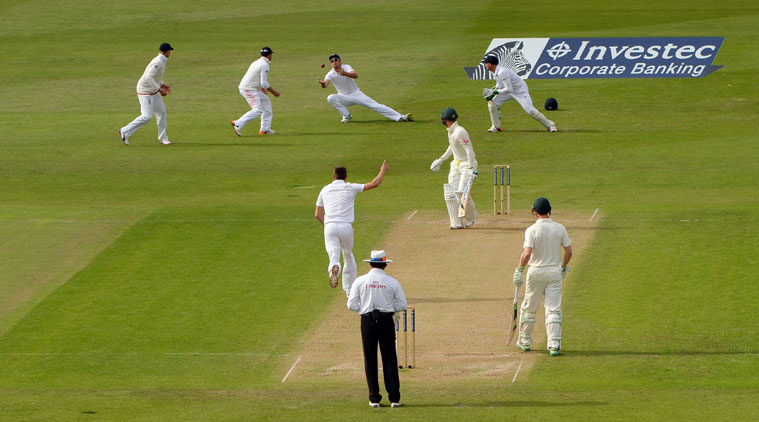Opinion Reverse Swing: Time for some ‘Lanka kaand’
Indian cricket teams are infuriating.

 India is about to kick off a Test series in Galle; and while this purist’s heart smiles at the rare prospect of Test matches — of which there are distressingly few on India’s tamasha-packed cricket calendar — it isn’t instantly racing in response to Sri Lanka, a team India plays with little passion. This time, however, could be different: a taut series which the Indian team actually cares about.
India is about to kick off a Test series in Galle; and while this purist’s heart smiles at the rare prospect of Test matches — of which there are distressingly few on India’s tamasha-packed cricket calendar — it isn’t instantly racing in response to Sri Lanka, a team India plays with little passion. This time, however, could be different: a taut series which the Indian team actually cares about.
Indian cricket teams are infuriating. Historically, they’ve tended to have an inferiority complex when playing Australia, England and the (prelapsarian) West Indies, rarely giving them a fight in away Tests. Against these teams, most Indian sides have gone in convinced that they’re not good enough in alien conditions — which they’re not, in truth; but this overly rational approach has led to a fatalism that is markedly absent, by comparison, in the scrappy sides from Pakistan. Pakistan have always been better losers than India, by which I mean that they put up a better fight in adverse conditions. In this they’ve been helped by their bowling, of course, which has been infinitely more incisive than India’s.
Alongside its limp approach to the stronger teams, India has always had a marked superiority complex when playing New Zealand and Sri Lanka (though that hauteur is waning versus the Kiwis, who have become one of the more improbably feisty sides in modern cricket). New Zealand was the first team to give India an overseas series victory, and have always been reliably inept when touring India. As far as the Lankans go, India’s Big Brother attitude dates to the time when Ceylon was thought good enough only to play Tamil Nadu in the Gopalan Trophy (a fixture which, incidentally, should be revived).
India’s disparagement of Sri Lankan cricket is misguided. Barring a period from 1986 to 1993, when India hammered Sri Lanka at home on scandalously doctored pitches, the two have tended to produce hard-fought encounters. India hasn’t won a series in Sri Lanka since 1993, and were, in fact, the team against which the Lankans earned their own first Test series triumph — in 1985 — a mere three years after their admission to Test cricket (with generous help, it should be said, from the local umpires, whose approach to fair play on the cricket field matched Mahinda Rajapakse’s later efforts in the political arena).
There’s a strange absence of edge in India-Lanka Tests, and if there has ever been real needle it was in those early days when Lankan umpiring was truly partisan (with Tamilian players such as Srikkanth targeted for eye-catching miscarriages of justice). There has never been any religious or historical undercurrent, and the abiding belief in the Indian mind each time it plays Sri Lanka has been one of indulgence of a smaller nation. As a result, India has rarely raised its game to its sturdiest level when playing teams from across the Palk Strait.
The Lankans, by contrast, push themselves to the limit against India. Some of the greatest feats in the history of their cricket have come against India. Duleep Mendis, in the inaugural Test in 1982, ripped India’s bowling to ribbons. Saliya Ahangama swung India to doom in 1985. Sanath Jayasuriya plundered 340 at Colombo in 1997, in the course of which he put on 576 for the second wicket with Roshan Mahanama. (At one stage the scoreboard read 615-1.) Muralitharan’s 8-87 in Colombo in 2001 was one of the most dazzling exhibitions of the modern spinner’s art. And my favourite performance of all: Ajantha Mendis’s surgical filleting of a powerful India line-up — Sehwag, Gambhir, Dravid, Tendulkar, Ganguly, Laxman-in 2008. (Has there ever been a better Indian batting line-up, and has an Indian XI ever been as flummoxed by spin?)
This series could see riveting new adrenaline. India has a captain who hates to lose. It’s his first proper series in charge and he’ll want to pound Sri Lanka as flat as a hopper. He’ll bring passion to a series that has traditionally lacked it sorely. India, for once, will be pumped against Sri Lanka.
Start the baila music!
Tunku Varadarajan is the Virginia Hobbs Carpenter Research Fellow at Stanford University’s Hoover Institution.
@tunkuv


